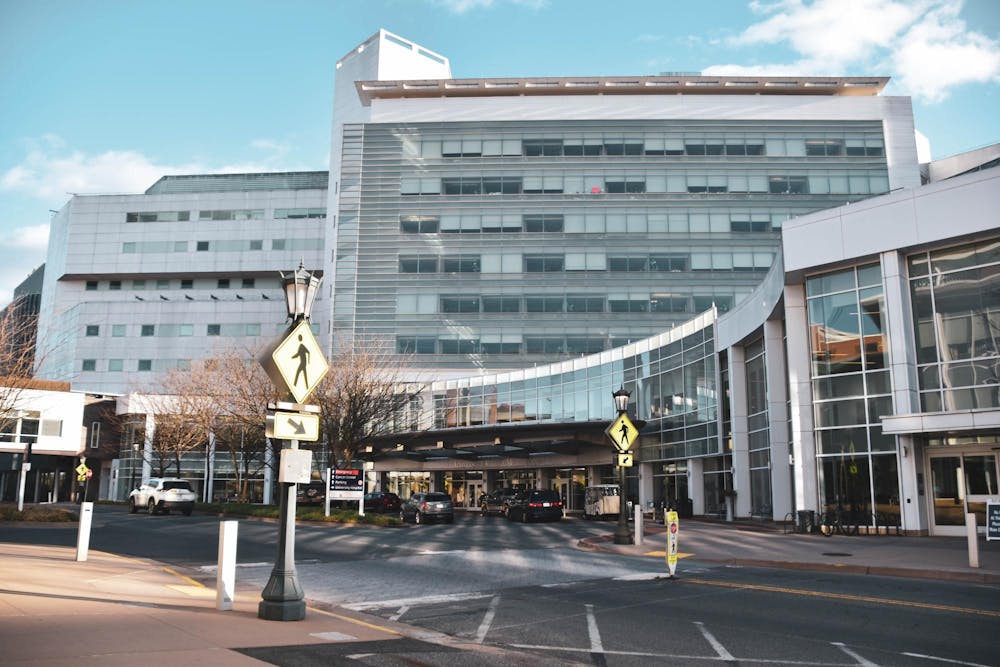University President Jim Ryan resigned June 27 under pressure from President Donald Trump’s Department of Justice, having been accused of misrepresenting his efforts to dismantle the University’s diversity, equity and inclusion programs. As students, we first learned of his resignation not from our own University, but from The New York Times. This failure of transparency by the University’s Board of Visitors is deeply troubling and reflective of the Trump Administration’s brazen campaign against higher education and academic freedom. This failure is compounded by a serious conflict of interest — the Board is largely appointed by Gov. Glenn Youngkin, and the University Counsel is unable to take legal action due to control exerted over them by the Virginia Attorney General’s office. To yield in the face of federal pressure does more than betray the University’s core values — it encourages future attacks on academia.
Trump issued an executive order Jan. 21, 2025, directing public institutions to terminate their DEI offices. The United States Department of Education then sent a letter to all public universities, threatening to revoke federal funding if they did not comply. This led to the University Board voting unanimously to dissolve the University’s Office of DEI and Community Partnerships. Ryan complied with this decision, yet still drew unnecessary scrutiny from the DOJ which accused him of non-compliance.
Despite federal claims, the University’s standards have not slipped. Our School of Medicine remains nationally top-ranked, with a strong research output and graduates continuing their medical careers at elite institutions. In 2024, our school was awarded over $163 million in National Institutes of Health research funds, and our biomedical engineering department is ranked No. 1 among public universities. So what issue is the DOJ trying to solve? The issue is Ryan and the institution of Jefferson refusing to bow down to an administration demanding a politicized view on science and medicine. This unprecedented level of federal interference violates the University’s autonomy by unjustly pressuring Ryan, who unquestionably sought to uphold these Jeffersonian values. If he is not reinstated, we urge the Board to choose a successor committed to supporting academic freedom and rejecting authoritarian influence on public education.
The Trump administration’s legal attacks have already jeopardized private institutions like Harvard University, Columbia University and Northwestern University — however, we are one of the first public universities to be targeted in this manner. Secretary of Education Linda McMahon stated, “Education is fundamentally a state responsibility” after Trump issued an executive order to close the Education Department. Yet, the administration’s pressure on the University says otherwise. Government overreach is actively harmful to our medical training and our patients’ health. Restrictions on topics like reproductive health, gender-affirming care, mental health and infectious disease prevention do not just limit education — they silence science. We cannot deliver high-quality, equitable care when healthcare decisions are motivated by ideology rather than data. As future physicians, we are obligated to make it clear that anti-science authoritarianism is incompatible with public health.
Every year, thousands of individuals from Virginia and neighboring states rely on U.Va. Health’s experienced employees and skilled trainees for competent care. The White House and the Board, with little understanding of the complexities of patient care, are infringing upon the doctor-patient relationship and attacking evidence-based medicine at this great University. Undemocratic bureaucrats are engaging in a concerted campaign of misinformation and fearmongering that will damage our ability to provide equitable care and negatively impact our medical training. If unchecked, extensive federal overreach will impair the University’s ability to recruit and retain top medical students and residents and will lead to a gradual decline in health outcomes for all Virginians.
Furthermore, the University alone has lost over $60 million in federal research support, including funding for life-saving medical research. This figure does not include the multitude of grants in study sections that have been indefinitely delayed, as well as other grants that have yet to be reimbursed. Research is a cornerstone of our medical education and growth as future physicians, and we are concerned that fundamentally apolitical organizations, such as the NIH and the National Science Foundation, are being weaponized to push restrictive political agendas. Research excellence is essential for clinical excellence — curtailing either places the people of Virginia at risk.
With the gubernatorial election on Nov. 4, we urge everyone to register and vote. The governor and state legislature play an instrumental role in determining our public University’s future, including choosing Ryan’s successor. Moreover, we call on the Board to reaffirm the University’s founding mission of the pursuit of knowledge and truth through reason, evidence and inquiry — free from political constraints. Thomas Jefferson envisioned the University as “based on the illimitable freedom of the human mind,” a place unafraid “to follow truth wherever it may lead, nor to tolerate any error so long as reason is left free to combat it.”
This moment is not just about one president — it is about protecting higher education in Virginia from political interference. Ryan paid the price in an attempt to uphold medicine's foremost tenet — do no harm — and his legacy will not be lost on us.
Zain Ahmad, Kavya Chandra, Alexia Childress, Elianna Dunster, Sadie English, Rusty Hawes, Cindy Li, Tula Raghavan, Vignesh Senthilkumar, Tara Srivastava, Isaiah Swann, Roy Toston and Michael Trask are students at the University of Virginia School of Medicine. They can be reached at opinion@cavalierdaily.com.
The opinions expressed in this guest column are not necessarily those of The Cavalier Daily. Guest columns represent the views of the authors alone.







